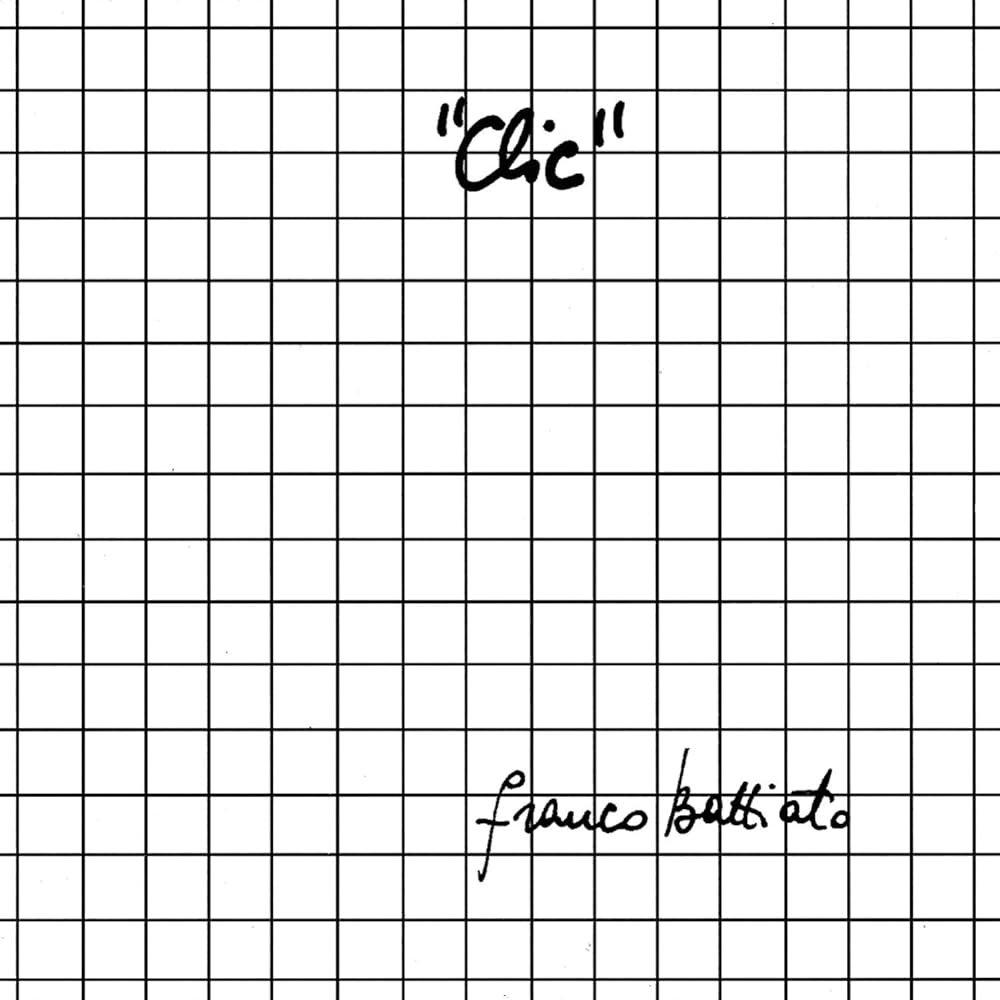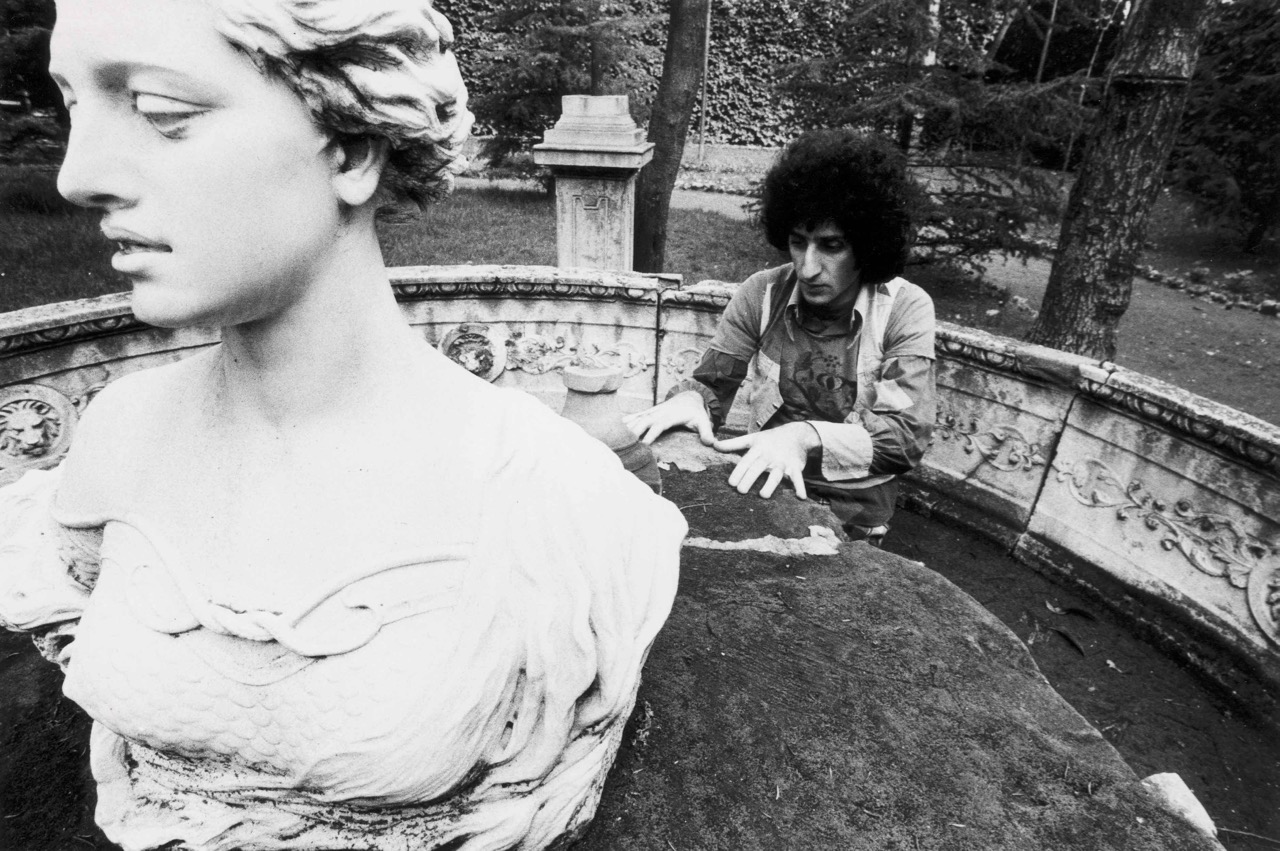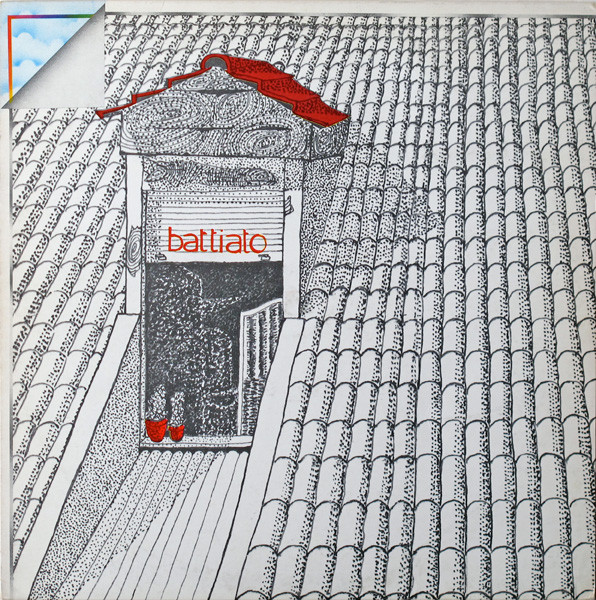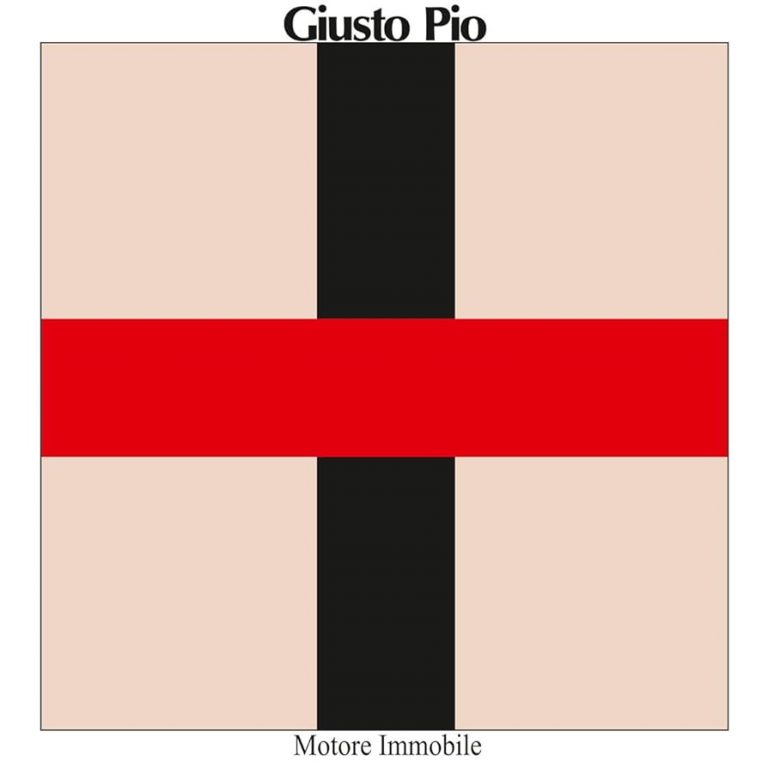
In Italy Franco Battiato (1945-2021) enjoys the status of a secular icon. More than a musician, he is considered by many as a guru of sorts and nicknamed “il Maestro” [The Master]. He was half shaman, half robot; contemplating Eastern wisdom from his Mediterranean outpost with a teutonic flair. His ascetic lifestyle, his public appearances and most of all, his lyrics – a brilliant blend of poetry, philosophy and platitudes – contributed to a certain aura of holiness which, at least in Italy, partly overshadows his music.
Beyond the myth, however, lies a string of amazing records and some of my personal favorites. The 1974 LP Clic is one of them, and I’d go so far as to say it’s his best record. To be clear, I say this as a fan of both his early experimental phase and his late successful chapter as a pop guru.

Born and raised in a small town in Sicily in 1945, il Maestro moved to Milan to pursue a career as pop singer in 1965. A booming big city, Milan was the main hub of the rich and industrious north where emigrants from the poor south moved to find a job or seek their fortune. It was also a place of flourishing creativity with a fertile underworld of avant-garde theatre, experimental music, student protests and cutting-edge design.
Exposed to and excited by these new influences, in the early 70s Battiato switched from tear-jerker love songs to a bizarre, idiosyncratic version of prog rock, a genre that was enjoying enormous popularity in Italy. He wasn’t very successful, but he began to build his own cult following thanks to his eccentric antics and the guerilla marketing tactics orchestrated by his manager, Gianni Sassi, a renowned art director and publicist close to experimental art group Fluxus.
After the first two records, however, Battiato was feeling trapped by his provocative image and disconnected from his own music. Wary of Milan, depressed and in a creative rut, he cut all ties with Sassi in 1972 and returned to his native Sicily in search of renewed inspiration. Isolating himself from the world at large and the demands of the music business, he started studying the works of the contemporary avant-garde, from Cage to the minimalists, and devoting himself to folk music. He became particularly interested in the Arabic tradition, whose influence was still very much present in Sicily, which had been an Arab colony for centuries.
The process of rediscovering his roots while exploring the latest musical innovations gave birth to two masterpieces that inaugurated a new direction in Battiato’s music: Sotto il Segno di Aries (1973) and Clic (1974). These records blended experimentalism with a certain Mediterranean touch and the signature melodic sensitivity that would play a major role in the success of his later pop albums.
Clic is dedicated to Karl-Heinz Stockhausen, whom Battiato met around 1972. As the story goes, the German composer invited Franco to his studio in Darmstadt: very surprised to learn that he had no formal musical training, Stockhausen introduced him to the basics of harmony, encouraging him to study music theory. Battiato took his advice seriously and, fittingly, ended up winning the Stockhausen Prize at the International Piano Festival of Brescia and Bergamo in 1978 with the piece L’Egitto Prima delle Sabbie.
Indeed the spectre of Stockhausen’s electronic compositions looms over the more experimental tracks, especially in ‘Nel Cantiere di un’Infanzia’ [In the Building Site of a Childhood], where processed vocals à la Gesang der Jünglinge are juxtaposed with the sound of a mandola, a plucked string instrument typical of Renaissance folk music. The closing radio collage of ‘Ethika Von Etika’ owes as much to Cage’s Imaginary Landscape No 4 as it does to Stockhausen’s experiments with broadcasting. In the same vein ‘Rien ne va Plus – Andante’, a Dada piece for strings and piano cut off by sounds of clapping hands and swarming vocals, could be Battiato’s witty answer to Berio’s ‘serious’ serial string quartets.
The record opens with ‘I cancelli della memoria’ [The Gates of Memory], a Tangerine Dream-esque synth overture interspersed with warm saxophones and crystal sounds giving way to a throbbing, prog-rock bass line. What stands out are the moments when the melody explodes – unbridled, almost shamelessly – as in the following, wonderful ‘No U turn’. The piece starts as musique concrète, with Battiato chanting backwards on his faithful VCS3 synth in his trademark muezzin fashion, and as the vocal track returns to normal, the melody rises over a tapestry of loops and choirs before exploding in a frenzied salterello, a perfect example of how avant-garde can be as emotionally charged as pop.
The melody of ‘No U Turn’ flows into the piano interlude of the following track, the melancholic ‘Il mercato degli dei’ [The marketplace of the Gods] based on simple chords accompanied by a sustained synth line. Clic‘s oddball hit is ‘Propriedad Prohibida’ [Forbidden Property], a highly energetic hybrid of Wendy Carlos’ Switched-on Bach, Klaus Schulze on acid and Terry Riley alla mediterranea. Weirdly catchy, the song became the title track of the evening news on national TV channel RAI 2, back in the days when public television in Italy wasn’t only catering to angry pensioners and middle-aged conservatives.
Battiato would later disavow his experimental phase, describing his 70s records as inaccessible. Well, I couldn’t disagree more. Clic sounds fresher and more in tune with contemporary musical sensibility than any of his ‘commercial’ albums. It’s avant-garde of yesteryear that sounds like pop for today. This is still one of the best, if not THE BEST album of Italian experimental music.


